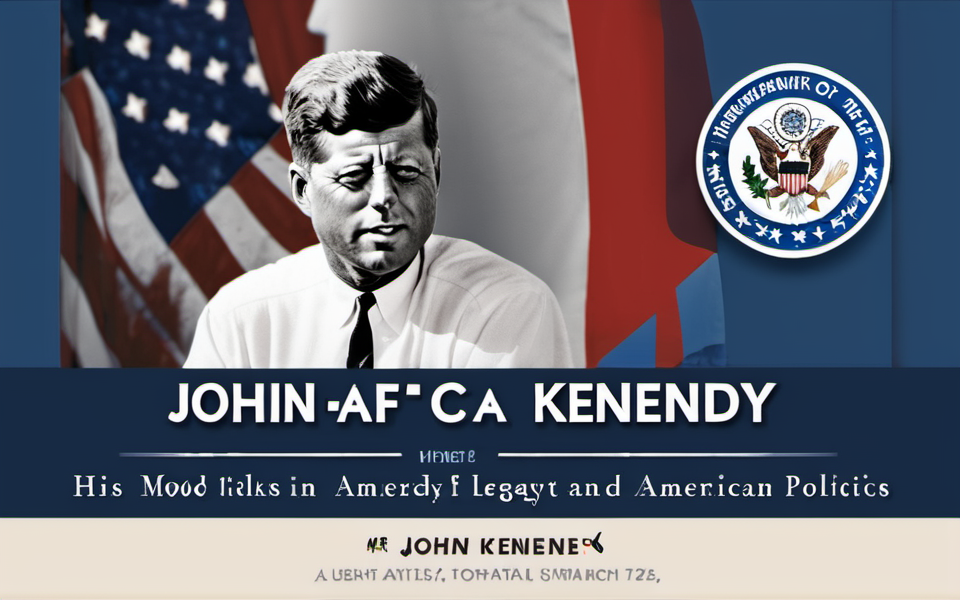When you think of American icons, John F. Kennedy immediately comes to mind. But why does his influence still resonate today? Let me take you on a journey through his fascinating life and lasting impact.
Early Life and Rise to Power
John F. Kennedy, often called “JFK,” was born into a prestigious family on May 29, 1917, in Brookline, Massachusetts. His father, Joseph Kennedy, was a wealthy businessman with significant political aspirations for his children. From a young age, JFK was groomed for greatness. He attended the best schools, including Harvard University, where he nurtured his passion for leadership and governance.
World War II was a defining moment for JFK. Serving as a Navy officer, he displayed exceptional bravery that earned him a Purple Heart. This experience not only sculpted his character but also set the stage for his political journey. When he returned home, he quickly gravitated towards politics, winning a seat in the U.S. House of Representatives in 1946. Just a few years later, in 1953, he moved up to the U.S. Senate, establishing himself as a young, charismatic politician with boundless potential.
The Presidential Campaign
In 1960, JFK embarked on one of America’s most memorable presidential campaigns. His opponent? None other than Richard Nixon, who was then the Vice President. The campaign was groundbreaking for several reasons: it was one of the first to heavily utilize television, and JFK’s youth and charm captivated a nation craving renewal and change.
One of the most iconic moments of his campaign was the first-ever televised presidential debate. JFK’s poised, confident demeanor contrasted sharply with Nixon’s more strained appearance. This debate played a pivotal role in swaying public opinion. Despite his relatively young age of 43, JFK managed to convey a sense of hope and future potential that appealed to millions of Americans.
On November 8, 1960, JFK won the election, becoming the youngest elected president in U.S. history and the first Roman Catholic to hold the office. His election wasn’t just a victory; it was a signal that a new era had begun in American politics.
Key Achievements and Policies
During his presidency, JFK focused on several critical issues, both domestically and internationally. One of his first endeavors was the establishment of the Peace Corps in 1961. Aimed at promoting world peace and friendship, the program sent American volunteers to developing countries to assist with education, health, and agriculture. The Peace Corps embodied JFK’s vision of service and global responsibility.
Another milestone was his ambitious goal of landing a man on the moon. Announced in 1961, his vision was realized in 1969, even though JFK didn’t live to see it. This endeavor not only marked America’s scientific and technological triumph but also reinforced Kennedy’s legacy as a leader who dared to push boundaries.
Domestically, JFK was a strong advocate for civil rights, despite facing significant political resistance. He proposed comprehensive civil rights legislation aimed at ending racial segregation and promoting equality. Although his measures were not fully enacted during his lifetime, they laid the groundwork for future advancements in the civil rights movement.
Assassination and Unfinished Dreams
Tragically, JFK’s life and presidency were cut short on November 22, 1963. While riding in a motorcade in Dallas, Texas, he was assassinated, a moment that shook the nation and the world. The shock and grief were palpable, and his death left many of his ambitions unfulfilled. However, his untimely demise also immortalized him as a symbol of hope and idealism.
The aftermath of his assassination saw the initiation and completion of several of his projects and policies. Most notably, the Civil Rights Act of 1964 was passed under the leadership of his successor, Lyndon B. Johnson, making JFK’s vision of racial equality closer to reality.
Enduring Legacy
JFK’s legacy extends far beyond his short term in office. His charisma, oratory skills, and vision for a better world continue to inspire generations. His speeches, particularly the famous “Ask not what your country can do for you—ask what you can do for your country,” remain iconic, encapsulating his call for public service and civic engagement.
The Kennedy family, often referred to as American royalty, has also played a significant role in maintaining his legacy. Many family members have pursued careers in public service, perpetuating the Kennedy vision of leadership and commitment to societal betterment.
In summary, John F. Kennedy’s impact on American politics and society is undeniable. His life, though cut short, was marked by significant achievements and an enduring spirit that continues to resonate. JFK’s legacy is a testament to the power of vision, courage, and the unyielding pursuit of a better future for all.






